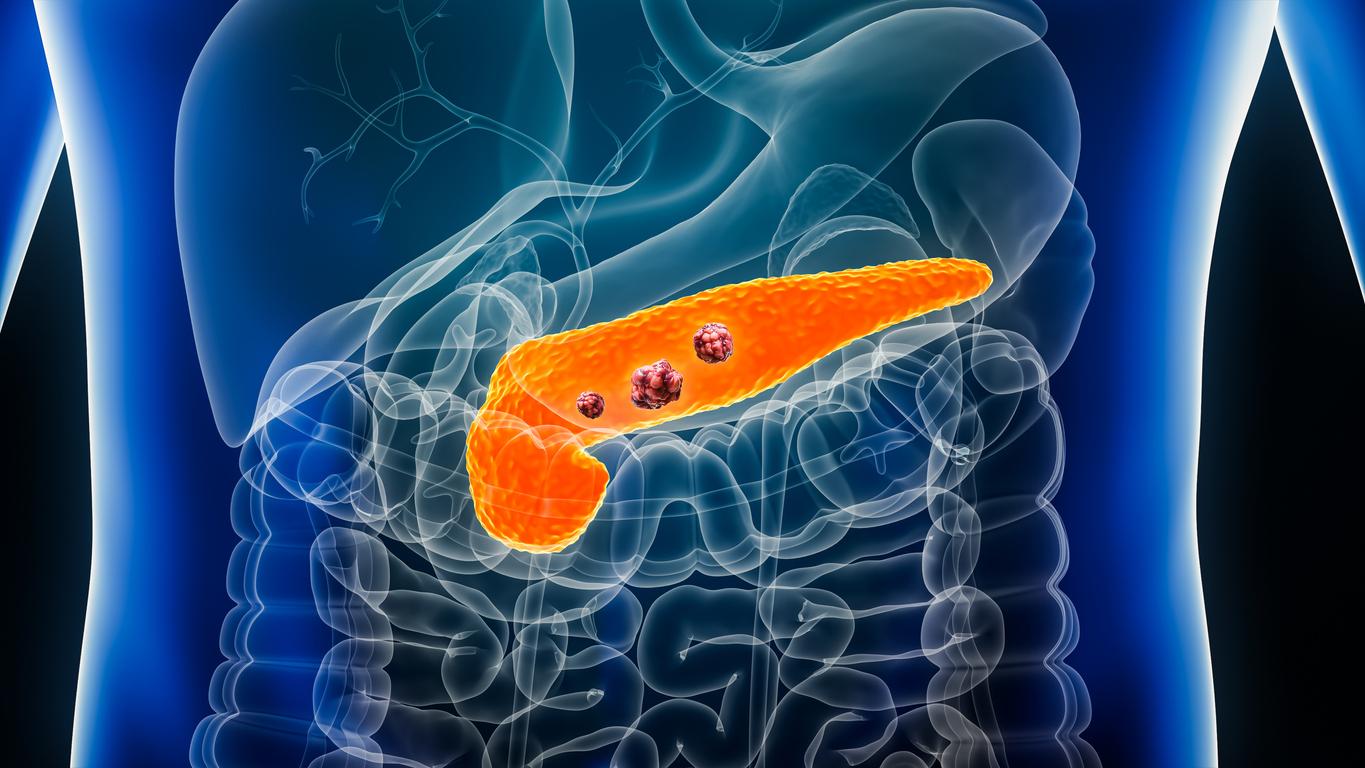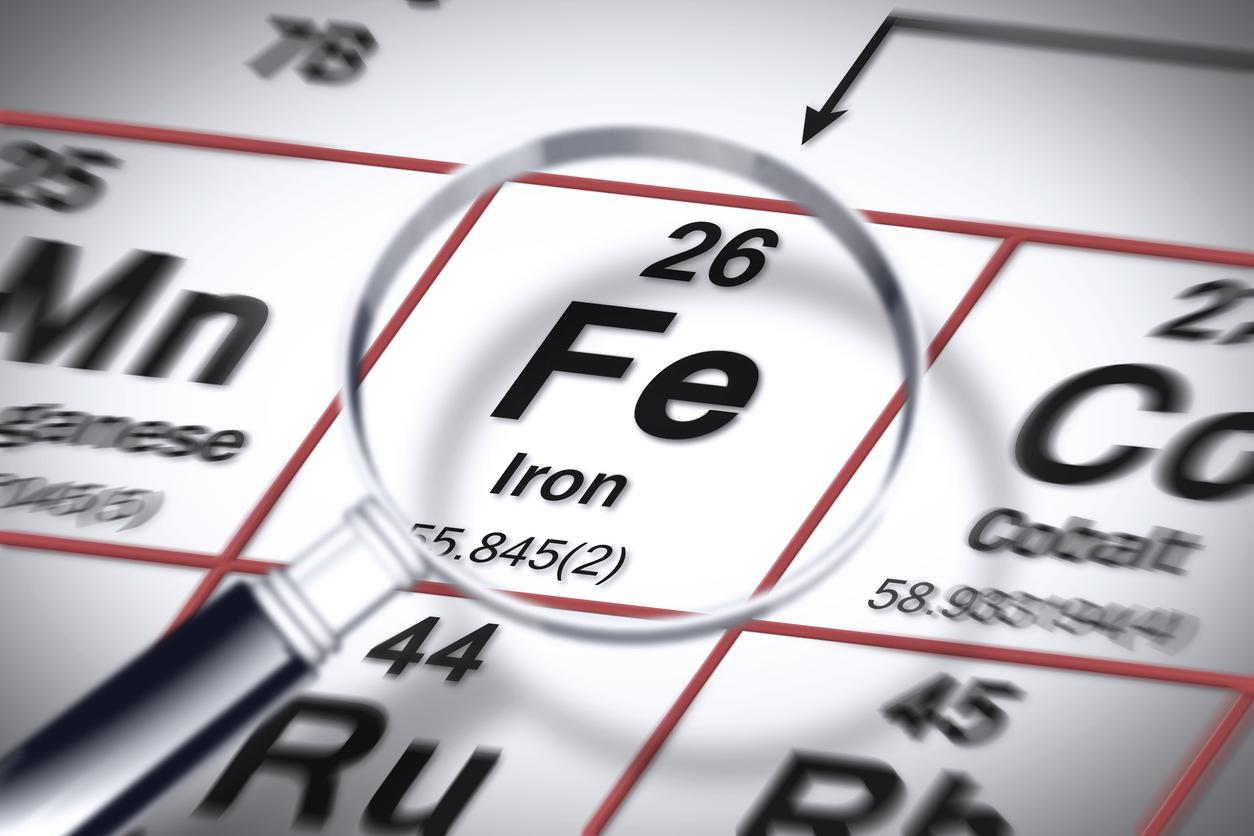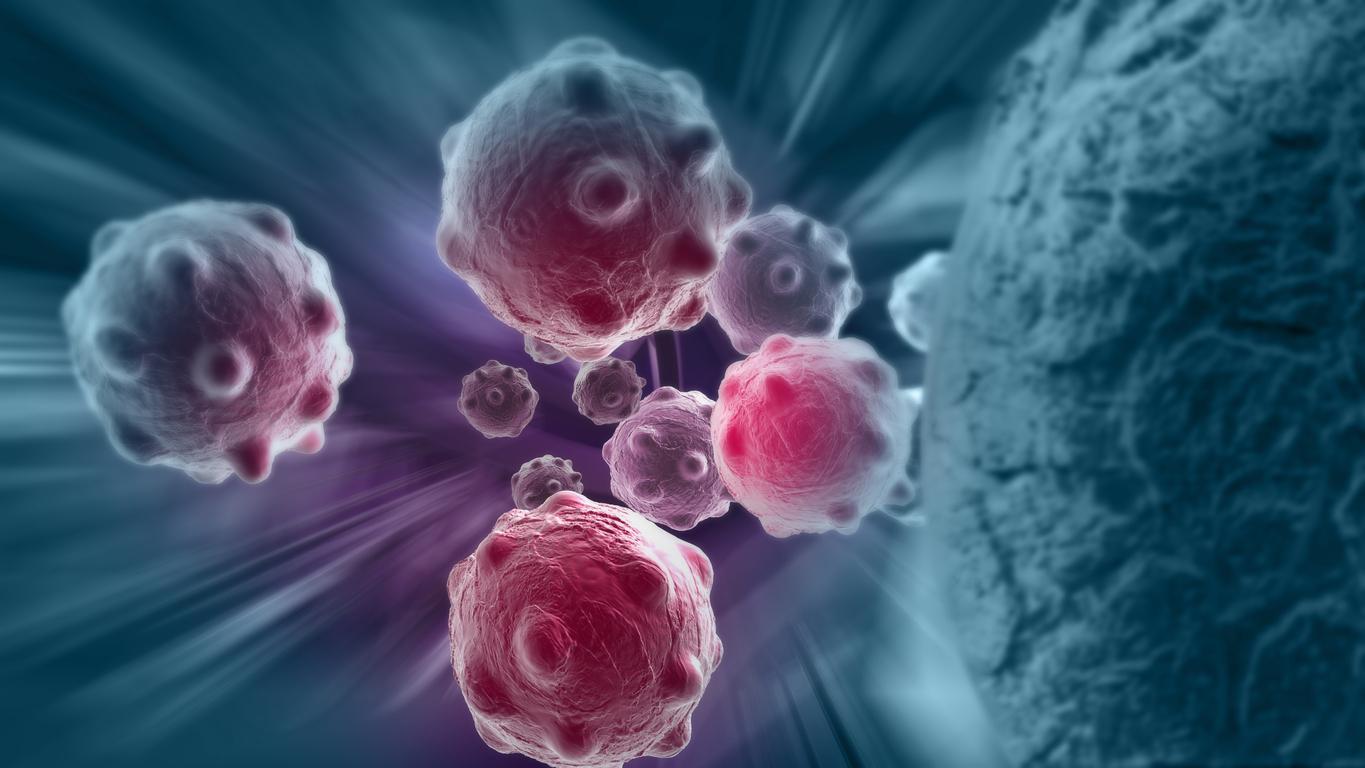A molecule, linked to the metabolism of iron, makes it possible to block the growth of metastases in the case of pancreatic cancer.

- Pancreatic adenocarcinoma is the most common form of pancreatic cancer.
- Most people affected are over 50 years old.
- In France, the 5-year survival rate is around 5%.
Each year, approximately 14,000 people learn that they have pancreatic cancer in France. The chances of survival are lower than for other cancers, due to the often late diagnosis. A team from the Roswell Park Cancer Research Center in New York State may have found a way to improve it. In a study, published in Molecular Cancer Therapeuticsthey explain having discovered that a molecule makes it possible to block the growth of cancerous cells.
Tumors resistant to treatment
Researchers focused on a specific form of pancreatic cancer: pancreatic adenocarcinoma. The cells that make up this type of tumor are predisposed to ferroptosis, a type of cell death triggered by iron. This phenomenon has recently been identified by science and has become a focal point of cancer research. “The identification of new agents that activate ferroptosis represents a new area of potential therapies for pancreatic adenocarcinoma, an aggressive and largely incurable disease.“, explain the authors. In this disease, a mutation of two genes was observed: KRAS and TP53. It would be responsible for the resistance of tumors to chemotherapy. “Since drugs and treatments targeting these mutations are not yet available, treatment options for patients are limited and the disease has a 5-year survival rate of only 12%.“, they specify.
A promising molecule
The molecule studied in this research, MMRi62, targets iron metabolism to kill cancer cells and the proteins that promote their growth and spread. “MMRi62 causes the degradation of an iron storage protein called FTH1, as well as a mutated protein, leading to inhibition of metastasis and ferroptosis“comments Xinjiang Wang, a professor in the Department of Pharmacology and Therapeutics within Roswell Park.”We have shown through this study that in a preclinical model, MMRi62 is able to induce ferroptosis in cancer cells harboring KRAS or TP53 mutations, which in turn inhibit tumor growth and prevent tumor metastasis to distant organs.“, adds the scientist. “Although no ferroptosis-inducing agent is currently available, we hope our discovery will lead to promising new MMRi62-based treatments for recalcitrant cancers such as pancreatic adenocarcinoma.These results should encourage the initiation of new studies on a future treatment.

.















